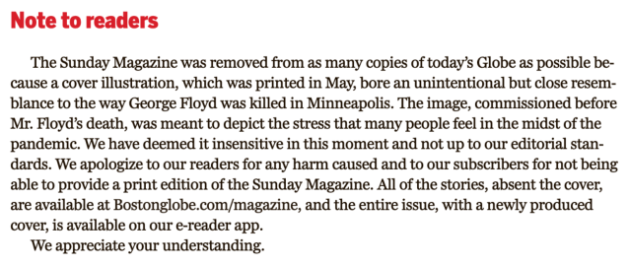
Masha Gessen. Photo (cc) 2017 by the MIT Media Lab.
I was struck by an argument that Masha Gessen made earlier this week at a panel about objectivity. Back in March, Gessen wrote a harrowing 7,000-word account for The New Yorker about Russian atrocities in the Ukrainian city of Kharkiv. Her editors, she said, wanted to include a comment from the Russian government — a statement in which officials would deny the horrific reality of what she and photographer Jérôme Sessini had documented.
“The objective style would demand that we give the Russian government a platform to lie,” she said. She told her editors that it would have “contaminated” the entire story to include a few lines of official denial. She prevailed; but she added that if she had been writing about any other topic, “I would have lost that battle.”
At another point in the discussion she said, “If we’re going to have an ideal, then moral clarity would be a much better ideal than objectivity.”
Gessen made her remarks last Tuesday at a discussion sponsored by the Columbia Journalism Review and Columbia’s Lipman Center for Journalism and Civil and Human Rights called “The Objectivity Wars.” For the most part, the discussion was familiar and predictable, but there were a few moments of genuine insight.
The panelists were David Greenberg, a historian at Rutgers University; Lewis Raven Wallace, author of “The View from Somewhere,” best known for losing his job at public radio’s “Marketplace” after writing a blog post that was critical of journalistic objectivity; author and journalist Wesley Lowery, who left his job at The Washington Post after clashing with then-executive editor Marty Baron over his opinionated Twitter feed; and Andie Tucher, the H. Gordon Garbedian Professor of Journalism at the Columbia Graduate School of Journalism. Moderating was Kyle Pope, editor and publisher of the CJR.
The most outspoken defender of traditional objectivity was Greenberg, who said that opinion journalism and objective journalism have long co-existed, and each has an important place. He noted that, at many newspapers, journalists who had paid their dues by working as straight-news reporters were often rewarded with columns in which they could express their opinions. “There’s a certain prestige and freedom attached to that position,” he said.
Tucher added that objectivity arose as an antidote to the sensationalism of the 19th century. “Journalism was terrible,” she said. “It was embarrassing.” Joseph Pulitzer, publisher of the lurid New York World, founded the Columbia School of Journalism, she said, out of a sense of “remorse.”
Lowery, whose critique of objectivity was best expressed in a New York Times op-ed piece published in 2020, argued that objectivity can’t be separated from race and gender, saying that the decisions that go into any conversation about what’s newsworthy and how stories should be covered are still overwhelmingly made by white men. “My piece will be different from your piece because we will make different subjective decisions,” he said. He said, too, that most news organizations have stopped providing information on how diverse their reporting staffs are (or aren’t) “because they don’t want to be embarrassed by it.”
Indeed, my Northeastern colleague Dr. Meredith Clark resigned from running the News Leaders Association’s diversity survey, she wrote earlier this year at Nieman Lab, because so few newsrooms were willing to respond. (Clark talked about her findings with Ellen Clegg and me on the “What Works” podcast a few months ago.)
Wallace said his turn against objectivity was grounded in his experience in coming out as transgender when he was a teenager. He wanted his identity to be part of what he did, he told the audience, saying, “Objectivity has been a silencing force — literally, in my case.”
Objectivity will continue to be a fraught subject. Properly understood, it simply means a fair-minded pursuit of the truth, with journalists adopting unbiased methods of reporting in order to get past their biases. Unfortunately, objectivity is too often reduced to the mindless reporting of “both sides” and of engaging in false equivalence.
The Columbia panel shows that those various understandings and misunderstandings of objectivity persist to this day.







